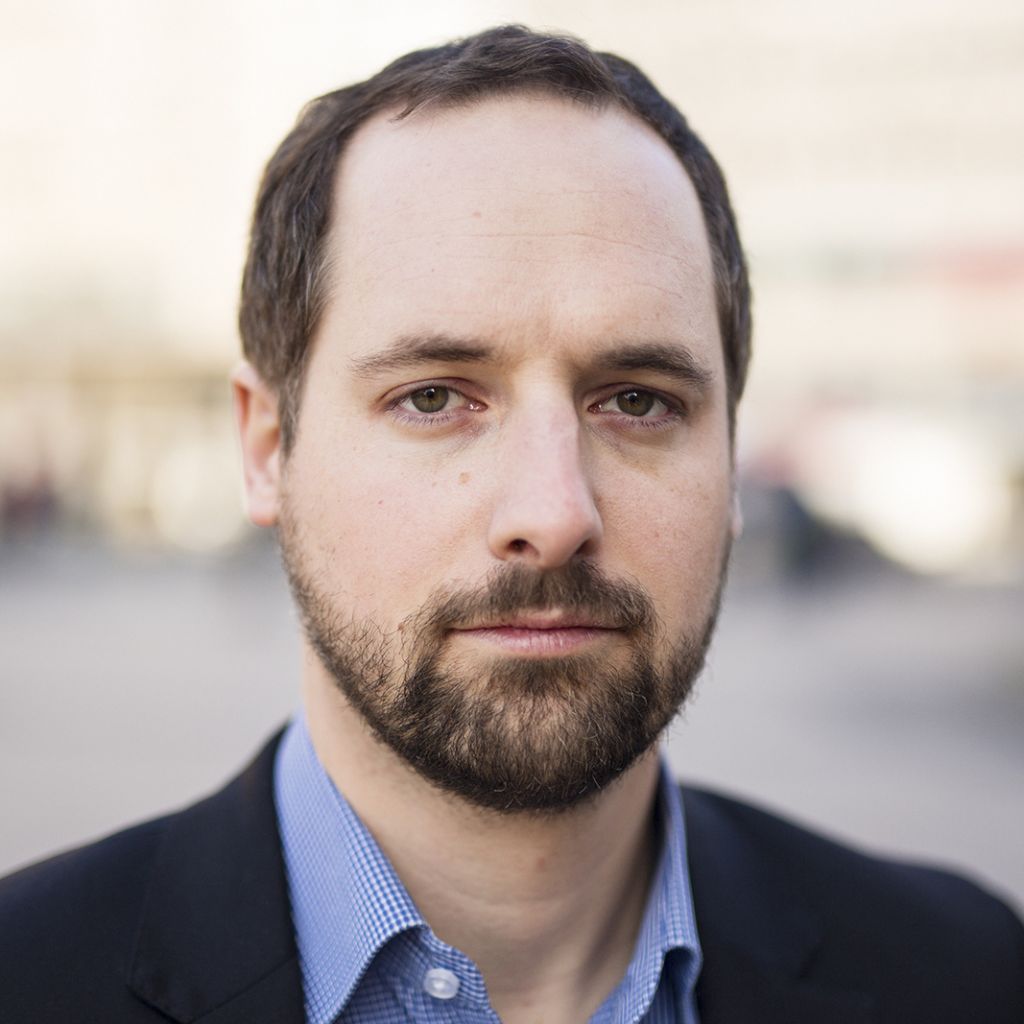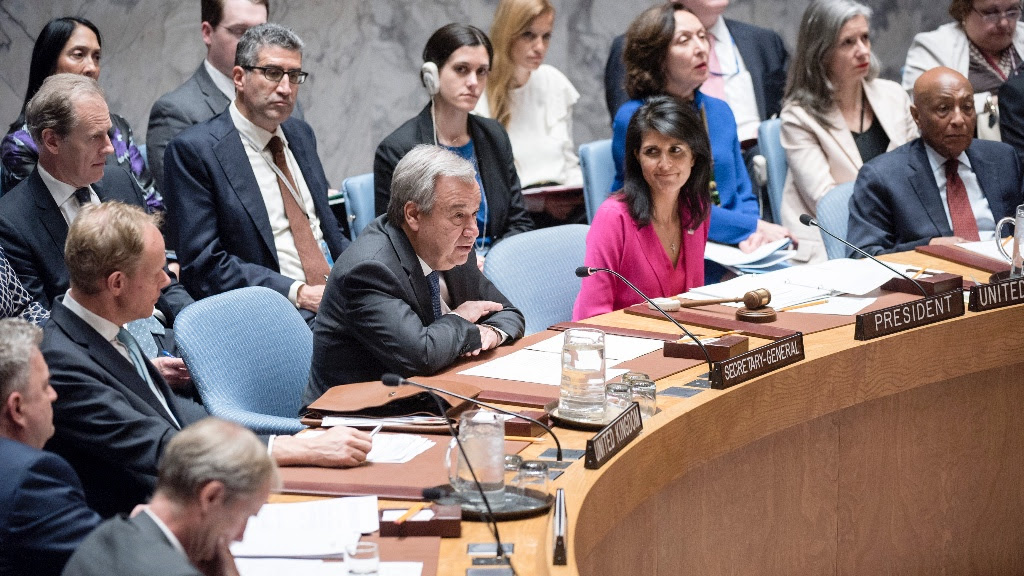It may come as a surprise that the debate in April was the first formal UNSC meeting to focus exclusively on human rights in its 70+ year history. Let that sink in a little. It is particularly extraordinary when you consider that human rights concerns often find their way into UNSC resolutions, have been the focus of UNSC-sponsored international criminal tribunals and its country-focused work, such as on Ukraine, and that many of the UN’s ongoing peacekeeping missions contain critical human rights components.
Another surprising element is that the initiative to hold such a debate came from the United States, which chaired the Security Council in April for the first time under President Trump. While this debate is a welcome development, one must question the administration’s intentions in leading the top UN body to look into human rights, when it has shown such a disdain for human rights and threatened to withdraw from the Human Rights Council.
Security Council engagement on human rights should be through a lasting commitment to promote the universality of human rights and mainstream them throughout the international system, not an isolated and politicised event. The US now has the responsibility to ensure this commitment.
There has historically been great reluctance on the part of UNSC members to focus specifically on human rights within the regular agenda. This hesitation is voiced through interpretations of state sovereignty, and sensitivities over “internal affairs,” and was reiterated by several States during the meeting.
The most outspoken delegation was Russia, which basically said, “no human rights at the Security Council,” and argued that a focus on human rights was likely to bring further political division to the work of the UNSC, and that the responsibility to tackle human rights issues lay with other UN bodies.
Isn’t it indeed interesting to see that Russia would put full power into avoiding any formal UNSC discussion on human rights, for example on the situation in Crimea? Russia has also used the briefings on Ukraine at the Security Council solely as opportunities to bash the Ukrainian government, rather than as genuine occasions to lead the country’s human rights reforms, and hold those responsible for human rights violations accountable.
Nevertheless, despite the reservations of Russia and others, and questions over the intentions behind the initiative for the Security Council to focus on human rights, there are compelling reasons for expecting human rights to be on the UNSC’s agenda, and for encouraging greater UNSC engagement on human rights in the future.
Human rights are written into the UN’s Charter – the UN’s founding document – and are one of the UN’s three foundational “pillars” alongside development, and peace and security. The UN Charter argues in its preamble that one of the primary reasons for the creation and existence of the United Nations is “to reaffirm faith in fundamental human rights, in the dignity and worth of the human person.”
Within the United Nations, the UNSC is given pre-eminence, and a global political leadership role for the whole of the rest of the UN system. It is illogical to have such global authority and yet not engage with one of the UN’s founding principles as a matter of course. The overriding directive of the UNSC is to secure international peace and security, but to truly guarantee this, human rights provisions need to be tightly woven into the fabric of any policy.
During the debate, Sweden said that failure to deal with human rights violations results in fear, suspicion and exclusion, which inevitably increases the likelihood of conflict. Sweden also stated that the UNSC’s “evolving work” required analysis of human rights conditions prior to, during, and after a conflict, in order to better carry out its mandate in the future.
The UNSC is indeed in a unique position of leadership to address certain human rights situations: where violations are particularly severe or likely to become severe; where violations can potentially lead to destabilising conflict; and where there is a significant impasse in dealing with violations elsewhere in the UN system.
The UN Secretary General, Antonio Guterres, rightly argued that “close cooperation between the office of the United Nations high commissioner for human rights and all relevant United Nations bodies, including the Security Council, enhances general awareness of potential crisis situations, and our collective ability to address them.”
With its 13 June Appeal to put human rights at the heart of conflict prevention, Switzerland has paved the path to follow. The UNSC would do well to link action on human rights to such an initiative, to help remove some of the concerns over “divisiveness” amongst the UNSC’s Permanent Members. It would also ensure that future important UNSC work on human rights has widespread support throughout the United Nations, giving it the very best chance of success.
But the UNSC should go further than this. In order to become more agile, and responsive to warning signals on the ground, it must allow regular opportunities to hear from civil society and human rights defenders directly, who, more often than not, recognise danger signs well in advance. This would be a bold step for the Security Council to take, but it would not be revolutionary. Almost all other UN bodies recognise the imperative of having “eyes and ears on the ground” and so provide platforms for regular bilateral engagement with civil society actors. One straightforward first step should be for the UNSC to invite civil society actors to give formal presentations and evidence on a regular basis.
The rights of human rights defenders, the rights to freedom of expression and association and assembly, are core to the enjoyment of any other right. These particular rights are enjoyed by those who themselves often provide their societies with an early warning mechanism around the spectrum of human rights protections. Once those rights are systematically violated, there is a good reason to believe that increased instability and conflict lie ahead. The UNSC ought to engage with civil society to hear when these types of rights are being violated, so that it is in a better position to address them before real instability sets in.
We as human rights organisations must also do more to push Security Council members to actively request briefings on worrying human rights developments that may impact regional stability. The ability of civil society to work free from hindrance is one of those indicators, about which the Security Council should worry more.
—
Monthly newsletter of the Human Rights Houses and HRHF
This article was first published as part of the monthly newsletter of the Human Rights Houses and HRHF. Sign up to receive news and insight into human rights issues and country situations, the projects and activities of Human Rights Houses, and portraits and interviews with human rights defenders.
About the author

Florian Irminger is Head of Advocacy of the Human Rights House Foundation





